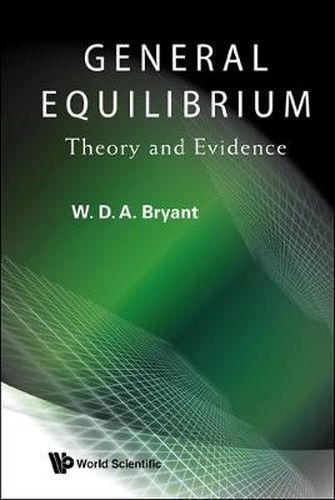Readings Newsletter
Become a Readings Member to make your shopping experience even easier.
Sign in or sign up for free!
You’re not far away from qualifying for FREE standard shipping within Australia
You’ve qualified for FREE standard shipping within Australia
The cart is loading…






General Equilibrium Theory studies the properties and operation of free market economies. The field is a response to a series of questions originally outlined by Leon Walras about the operation of markets and posed by Frank Hahn in the following way: ‘Does the pursuit of private interest, through a system of interconnected deregulated markets, lead not to chaos but to coherence - and if so, how is that achieved?’ This is always an apt question, but particularly so given the ‘Global Financial Crisis’ that emerged from the operation of market economies in the Americas and Europe in mid to late 2008.The answer that General Equilibrium Theory provides to the Walras-Hahn question is that, under certain conditions coherence is possible, while under certain other conditions chaos, in various forms, is likely to prevail. The conditionality of either outcome is not always well understood - neither by proponents of, or antagonists to, the ‘free market position’. Consequently, this book attempts to show something of what General Equilibrium Theory has to say about the wisdom or otherwise of always relying on ‘market forces’ to manage complex socio-economic systems.
$9.00 standard shipping within Australia
FREE standard shipping within Australia for orders over $100.00
Express & International shipping calculated at checkout
General Equilibrium Theory studies the properties and operation of free market economies. The field is a response to a series of questions originally outlined by Leon Walras about the operation of markets and posed by Frank Hahn in the following way: ‘Does the pursuit of private interest, through a system of interconnected deregulated markets, lead not to chaos but to coherence - and if so, how is that achieved?’ This is always an apt question, but particularly so given the ‘Global Financial Crisis’ that emerged from the operation of market economies in the Americas and Europe in mid to late 2008.The answer that General Equilibrium Theory provides to the Walras-Hahn question is that, under certain conditions coherence is possible, while under certain other conditions chaos, in various forms, is likely to prevail. The conditionality of either outcome is not always well understood - neither by proponents of, or antagonists to, the ‘free market position’. Consequently, this book attempts to show something of what General Equilibrium Theory has to say about the wisdom or otherwise of always relying on ‘market forces’ to manage complex socio-economic systems.